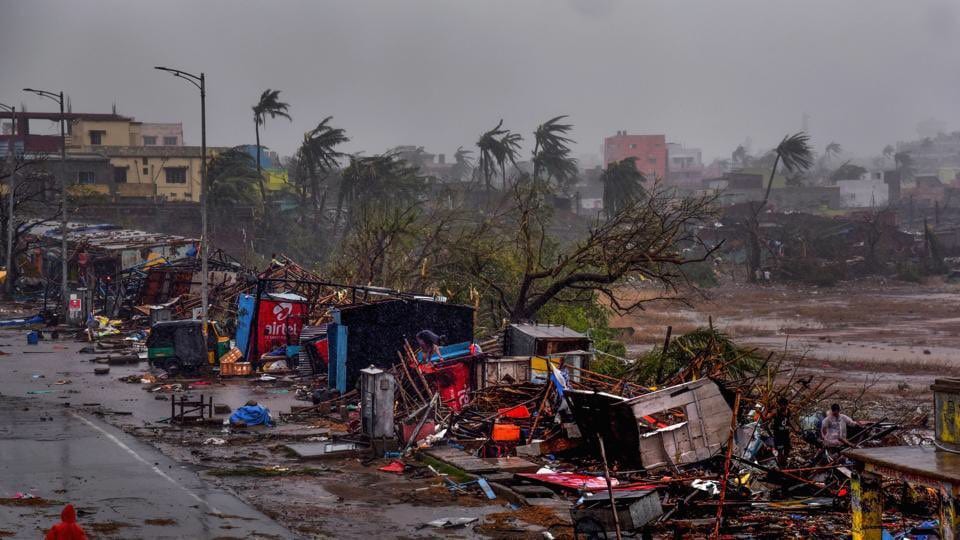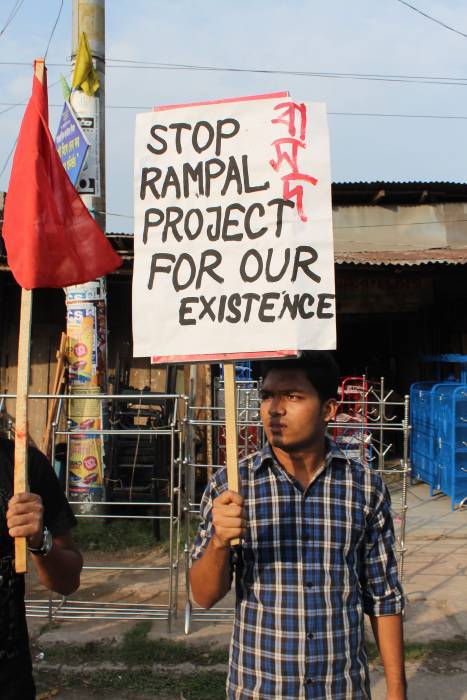In 1999 the Odisha Super Cyclone killed 10,000 people in Odisha, an eastern state of India. 20 years later, as the equally severe Cyclone Fani hit the same state, 13 people lost their lives. In the last two decades, the state of Odisha established India’s best disaster response system and their actions saved countless lives as Cyclone Fani hit — but no disaster response system can prevent the huge destruction to people’s homes and lives that follow in the wake of a super cyclone.

A view of the destruction caused by Cyclone Fani after its landfall, in Puri
Once again Odisha stands at an important intersection. It can either lead another energy transformation or continue to be India’s second largest coal producer. Odisha has experienced its share of cyclones in the last decade. While it has improved its response system it hasn’t worked to eliminate the root cause of these cyclones. Science clearly shows that warming oceans caused by the burning of fossil fuels will only make cyclones more intense and dangerous.
Yes, Odisha’s contribution to global emissions is negligible and it is unfair to blame people in one of the impoverished states in India who have done the least to contribute to the current climate crisis. However, the coal mines, thermal power plants, ports and other industries in the state have put vulnerable communities at bigger risk.

In Bangladesh pushing for the end to the Rampal Coal Plant that would put the vital Sundarbans mangroves in danger.
Mangroves, which are the first and strongest defence against cyclones, are being destroyed along the coastal belt to make way for industries and ports. These mangroves saved many lives in 1999’s Odisha super cyclone, but now their density is decreasing day by day. Locals have been protesting against such destruction for decades but profit has always won over people. Communities that lost their villages and sacred forests to industrialization are now losing everything to such climate disasters.
As the news of destruction caused by Cyclone Fani spreads globally, donations and relief materials have started to pour in from all over the world. While this immediate support is urgently needed, people in India and Bangladesh need a bigger commitment from the international community:
- Stop the fossil fuel industry in your country.
- Stop your banks and institutions from funding these reckless companies.
Your action today is the only way to ensure that houses and livelihoods in coastal regions won’t be destroyed by cyclones every year.
Nations like the United States, and fossil fuel companies like Exxon and Shell, knew that burning of fossil fuels would lead to this destruction. Yet they buried the science and continued to exploit people and their resources in the name of greed and profit. Likewise today the coal and thermal energy that villages in Odisha produce is exported to cities to meet the ever-growing electricity demand for industries, shopping malls and advertising billboards, while tribal villages still wait for basic access to energy.
Timely warnings and evacuation may save human lives but they can’t save the lives and livelihoods that people have built over decades. The sight of your completely destroyed home, the experience of standing in long queues to feed to your children, trying to find remains of one’s memories will haunt people in India and Bangladesh for years to come. The world must act now and stop chasing fossil fuel based development. We can not continue to keep sacrificing millions of families for the interests of aa handful of billionaires.
Get involved where you live and fight for a fossil free world.